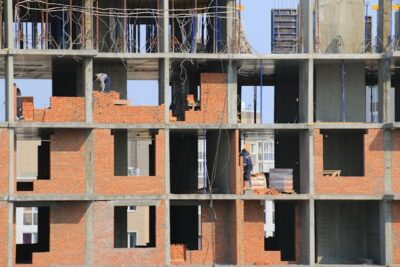When it comes to construction, there are so many moving parts that organization needs to be a top priority for your business. The budget that you have in place for your job is one of the key aspects that impacts timelines, materials choices, staffing, and nearly every other aspect of your company’s efforts. You need to understand how to make a complete and correct budget before you ever start working on projects.
Knowing the difference between hard vs soft costs is key when making a construction budget. This guide will help you to be prepared to make a budget that you can count on so that you are positive that your project is on track from start to finish. These tips and tricks will improve your budgeting process and remove roadblocks and challenges that might otherwise cause work stoppages and other issues.
Tips to Use When Making a Construction Project Budget
1. Know About Hard and Soft Costs
As mentioned above, hard and soft costs are big factors in how you set up a budget. You need to know which is which so that you can assign the right values to them in your budgeting plans. Hard costs are things like concrete and foundation work, roofing and siding, framing materials and structural elements, and things like HVAC installation or electrical work.
Hard costs cover all the fundamentals that make construction possible, and you absolutely cannot budget properly without knowing your numbers for these critical elements of the work that needs to be done. This portion of the budget also covers labor, so you will need to have this in mind when you are hiring and deploying staff to your work sites.
Soft costs are things like permitting and legal fees, insurance and taxes, environmental studies and inspections, and things like financing. These are critical parts of the overall budget as well, but they usually happen before and after the construction process starts and finishes. This is why they are categorized differently. You will need to have money set aside for both stages of any construction project, and the determination of what is hard and what is soft when it comes to cost can help you make a correct budget for each stage of the work process.
2. Know the Scope of the Job
One of the things that can cause havoc when it comes to budgeting for a construction project is being unaware of the scope of the project. Are you positive that you understand the timeline that this project needs? Are you aware of all of the possible complications and risks associated with the build? Do you know for sure that you have the right number of employees to keep the project on target?
All of these considerations can be crucial to have locked down so that you are clear about the needs of the job to get it from start to finish without major hiccups. When the scope of a project is not correctly assessed, there are almost always major slowdowns and other problems that can take the job and the budget guiding it, well into the weeds.
3. Monitor and Review
No matter how well you have planned out a construction project, it is possible for it to get off track. This is why you need to monitor and adjust as you go along. If you think that timelines won’t be met due to weather, problems with sourcing materials, or issues with staffing, your budget must also be adjusted to match these challenges.
Budgeting and project management go hand in hand as a project develops. Often, small adjustments need to be made to keep the project flowing and to make sure that the funding that is needed will be available to cover the difference between expectation and reality. You will need to be aware of the status of the project and its proximity to the projected estimates and timelines from start to finish, so that your budgeting is correct for the needs of the job.
4. Communicate Well
Your staff can only work effectively if they know that the job is on track and being handled the right way. Playing guessing games is always bad for the health of a project and it’s pretty hard on morale as well. You will need to stay in close communication with those who are working on your construction jobs to be sure that everyone is on the same page throughout the job.
Being able to communicate changes in plans, alterations to budgets, and necessary staffing increases or decreases is critical if you want your construction project to stay on plan and on budget. Communication is the bedrock of successful construction jobs, no matter how big or small the construction project is.

Having a Correct Budget is Key For the Well-Being of Your Construction Projects
You cannot hope to keep a construction job on target and within budget if you don’t follow these tips and tricks. When you create a budget, you need to prepare for all eventualities and think about historical data as well as potential roadblocks and issues that are specific to the site that you are currently working on. Being well-informed and up-to-date on the status of each project allows you to adjust and shift the budget and keep things on track the smart way throughout the job.
Be sure that you have the right number of employees working on each stage of the job and that you know the difference between hard and soft costs as well. There is no exchange for being involved in the process, but you can hand off this important oversight to a skilled project manager as well if need be. Creating an effective budget means understanding all the moving parts that are necessary to build a home or commercial property from the ground up. Make sure that you have these strategies in mind before you engage in your next budgeting process.
View the original article and our Inspiration here


Leave a Reply